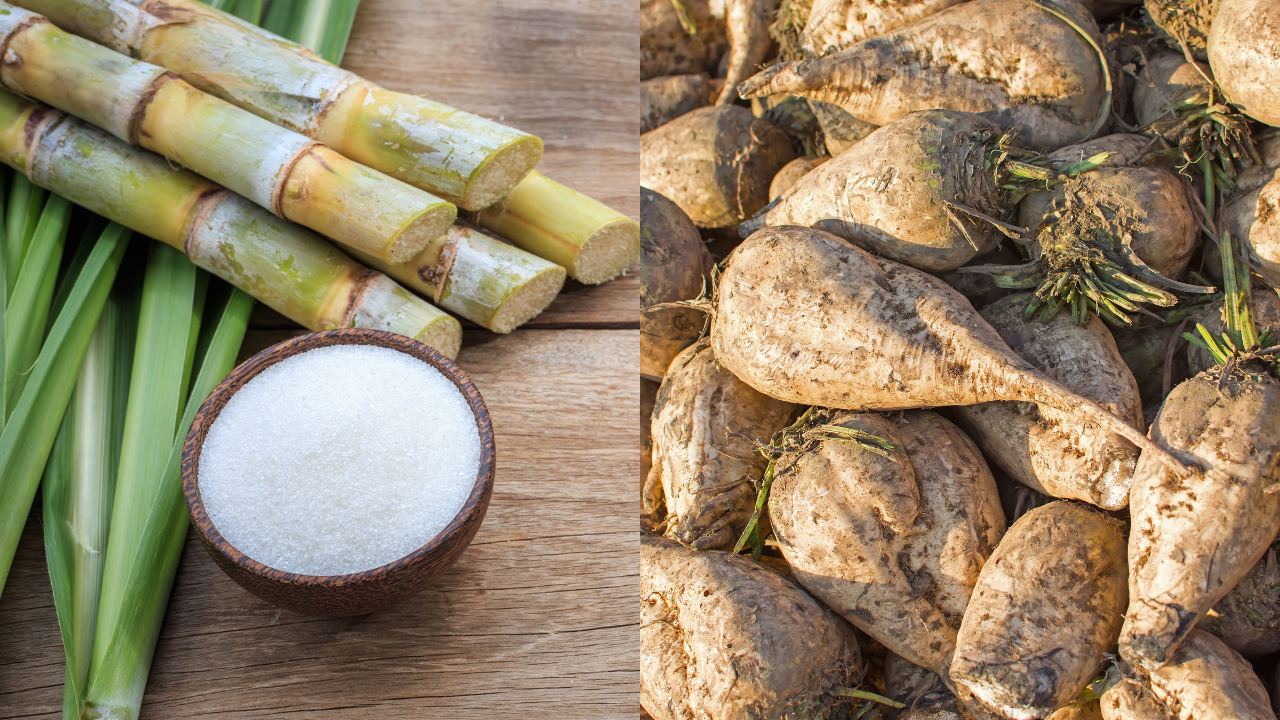Many people compare beet sugar vs cane sugar to understand their differences in flavor and granulation.
Many people compare beet sugar vs cane sugar to understand their differences in flavor and granulation.
Blog Article
Discover the Uses and Benefits of Beet Sugar Vs Cane Sugar in Your Daily Diet Plan
Discovering the distinctive top qualities of beet and cane sugar exposes greater than just their sweetening abilities; it highlights their one-of-a-kind influence on health and wellness and cookeries. Beet sugar, known for its refined flavor, is typically favored in delicate desserts, whereas cane sugar, with its tip of molasses, includes splendor to robust recipes. Each type holds its own dietary account and glycemic ramifications, inviting a much deeper understanding of their roles in a balanced diet and lasting usage practices.
Origin and Production Procedures of Beet and Cane Sugar

The distinctive environments and dirt types required for expanding sugar beets and sugarcane add to distinctions in their growing practices and geographical circulation, affecting the economics and sustainability of their manufacturing. beet sugar vs cane sugar.
Nutritional Comparison Between Beet Sugar and Cane Sugar
In spite of originating from various plants, beet sugar and cane sugar are nutritionally really comparable, both mainly containing sucrose. Each offers about 4 calories per gram, translating to approximately 16 calories per tsp. Structurally, both sugars are made up of around 99.95% sucrose, with marginal quantities of various other materials like dampness and trace minerals, which do not substantially change their nutritional profiles.

Inevitably, when picking between beet sugar and cane sugar based on nutritional content alone, both offer identical advantages and disadvantages as they are basically learn the facts here now forms of the very Visit Website same molecule-- sucrose, supplying fast power without various other nutrients.
Influence On Wellness: Glycemic Index and Caloric Content
Exploring further into the impacts of beet sugar and cane sugar on health and wellness, it is very important to consider their glycemic index and caloric material. Both sugars are identified as sucrose, which includes sugar and fructose. This structure leads them to have a comparable effect on blood sugar level degrees. The glycemic index (GI) of both beet and cane sugar is around 65, categorizing them as high-GI foods, which can trigger fast spikes in blood glucose levels. This is an essential facet for individuals taking care of diabetes or those trying to stabilize their power degrees throughout the day.
Each kind of sugar includes around 4 calories per gram, making their caloric content equivalent. For those checking caloric consumption, specifically when managing weight or metabolic health and wellness problems, understanding this equivalence is crucial (beet sugar vs cane sugar). Excessive intake of any type of high-calorie, high-GI food can add to health concerns such as obesity, heart disease, and insulin resistance.
Environmental and Economic Factors To Consider of Sugar Production
Beyond wellness effects, the manufacturing of beet and cane sugar also increases substantial ecological and economic concerns. Sugar beet cultivation has a tendency to require cooler climates and has a reduced geographical impact compared to sugar cane, which grows in tropical areas.
In addition, the use of pesticides and plant foods in both beet and cane sugar growing can cause dirt destruction and pollution, more influencing biodiversity and regional water bodies (beet sugar vs cane sugar). The selection in Get the facts between growing sugar beet or cane typically rests on local environmental problems and economic elements, making the sustainability of sugar manufacturing a complex problem
Culinary Applications and Flavor Differences
While the environmental and economic facets of sugar production are indeed considerable, the choice in between beet and cane sugar likewise affects cooking applications and taste accounts. Beet sugar, obtained from the sugar beet plant, is recognized for its extremely neutral preference. This makes it a functional active ingredient in cooking, where it does not alter the taste of other components. It dissolves swiftly and is perfect for usage in cakes, cookies, and breads.
Cane sugar, extracted from sugarcane, often maintains molasses traces, which impart a distinct richness and deepness. This slight molasses flavor improves the complexity of baked items, sauces, and marinates. It is specifically preferred in items where a sugar undertone is wanted, such as in brownies or gingerbread. Furthermore, the minor variant in dampness web content in between beet and cane sugar can affect the appearance and consistency of meals, making cane sugar a recommended choice for specific dishes that take advantage of its special homes.

Conclusion
Finally, both beet and cane sugar have unique origins and manufacturing procedures, providing comparable nutritional accounts with mild differences in sodium content and taste. While their influence on health and wellness, specifically relating to glycemic index and calories, is equivalent, the option in between them commonly comes down to environmental, financial variables, and specific cooking demands. Comprehending these facets can lead customers in making informed choices that align with their health and wellness objectives and taste choices.
Report this page